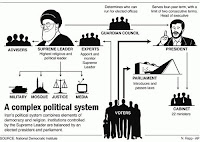Iranian mythology

"Art" is generally considered, the reflection of life. "Culture" is generally considered, the understanding of life. Should we accept these definitions, then "Literature" should inevitably be defined as a combination of art and culture.In some of the older cultures like that of Iran, Greece, Rome, Egypt and the Chinese, where an ancient entity makes a documented history of any factual historical chain of events, impossible to uphold, the element of "Myth" is added. The word "Myth" is usually a definition for a false story and in many older cultures, the mixture of legends and folktales of different magnitudes are mixed with a romantic fairytale to give us a, what is known as "Mythology".
When the Iranian Mythology is mentioned, the name of the Iranian poet "Ferdowsi"(935-1020 AD) becomes indispensable, his grand work the "Shah-Nameh" brings up the pre-Islamic cultural characteristics of Iran along with the ancient Iranian religious traditions,simplified into good and evil, pictured as light and darkness. The names and faces of the heroes of the Iranian mythology are more than familiar to the Iranians, but not much to Westerners. Lets hope we can arouse some interest by the westerners into studying Iranian culture just as enthusiastically as they study and consume the Greco-Roman mythology.
"Rostam" is the name of the hero and he is Iran's equivalent to "Hercules". The evil element in Iran's mythology was a king called "Zahak" with snakes having grown out of his shoulders, initiated by two kisses on the Kings shoulders from "Ahriman"(Satan) (if that sounds familiar, its because of some thieving Hollywood screenwriters). "Kave" was a blacksmith that eventually defeated Zahak, but the stories leading up to this had different twists and turns with episodes containing tragedies and conflicts, most notably of Rostam and his son "Sohrab", not to forget the women involved in the intriguing and highly amusing sequence of events. Shah-Nameh is written in a very pure and eloquent style of Persian poetry which is also attributed to Ferdowsi, the style is considered very national and appreciated amongst all Iranians with an affinity to the Persian language.
I leave a link for anyone interested in the "Shah-Nameh"(Book of Kings)to read and understand Iran's Mythology, the site and the content is in English.
Click here for Ferdowsi's Shah-Nameh in English
.



Comments
I enjoyed the stories :)